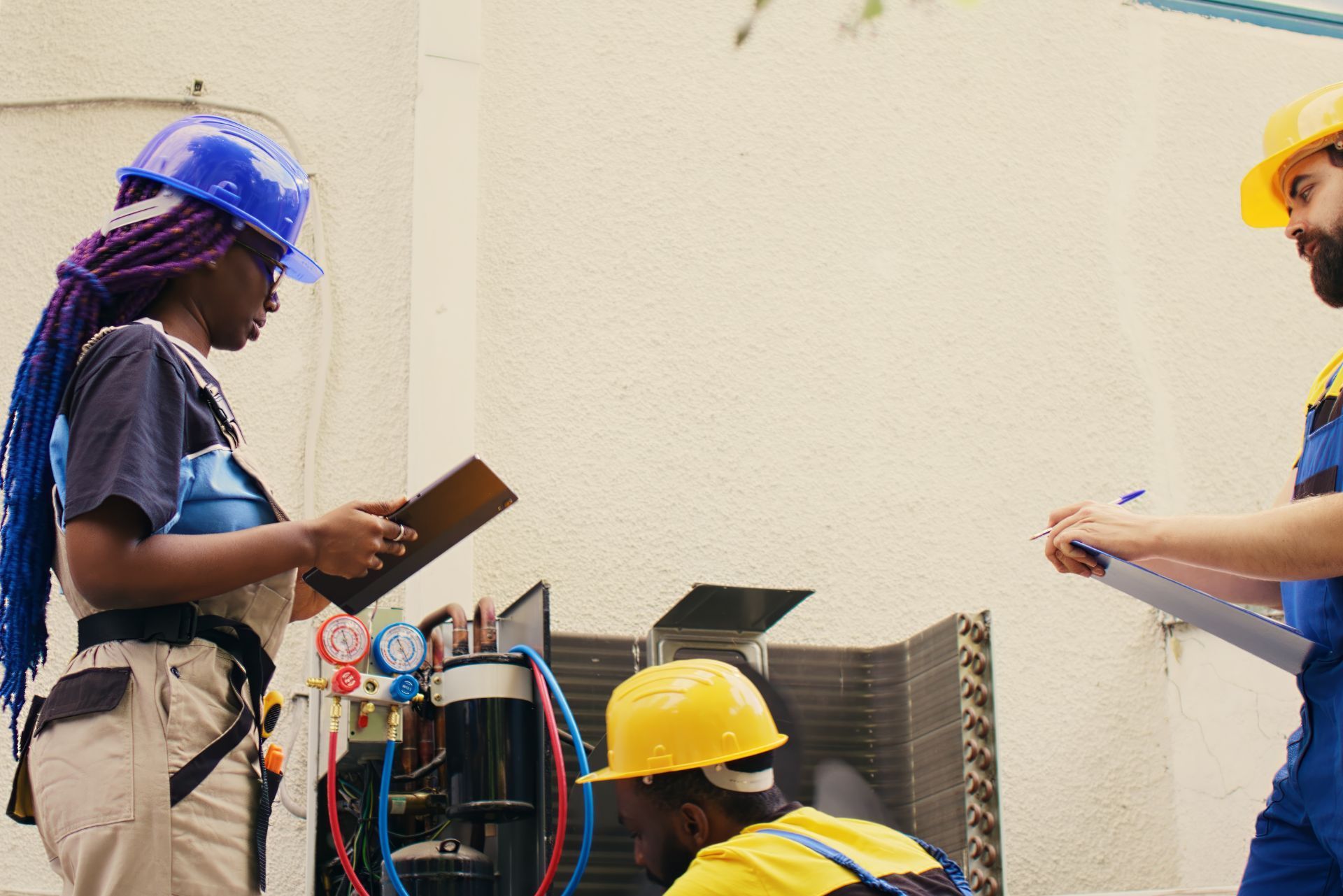Top 3 Recommended Policies

For HVAC contractors, securing a surety bond is more than just a regulatory formality—it’s a critical component that safeguards clients and ensures business credibility. Whether you’re a seasoned professional or just starting out in the heating, ventilation, air conditioning, and refrigeration (HVACR) industry, understanding surety bonds is essential. This article explores everything HVAC contractors need to know about surety bonds, including what they are, why they matter, the costs involved, and recent trends shaping the surety bond landscape.
What Is a Surety Bond and Why Do HVAC Contractors Need One?
A surety bond is a three-party agreement that guarantees the contractor will fulfill their obligations to the client according to the terms of their contract. The three parties involved are the principal (the HVAC contractor), the obligee (usually the state licensing board or the client), and the surety company that issues the bond. If the contractor fails to meet the contractual or regulatory requirements, the surety company steps in to cover financial losses up to the bond amount.
For HVAC contractors, surety bonds are often mandated by state licensing boards as a prerequisite for obtaining or renewing a license. Lisa Trymbiski, manager at Bryant Surety Bonds, explains that these bonds serve as a form of protection, ensuring contractors adhere to industry standards and legal requirements. This not only protects consumers but also helps maintain the integrity of the HVACR profession.
In states like Alabama, for example, the Alabama Board of Heating, Air Conditioning & Refrigeration requires HVAC contractors to secure a $15,000 surety bond annually. This bond acts as a financial safety net, reassuring customers and regulators alike that contractors are committed to responsible business practices. More details on Alabama’s surety bond requirements can be found at surety1.com.
Moreover, the necessity of a surety bond extends beyond mere compliance; it also enhances the contractor's credibility in a competitive market. When clients see that a contractor is bonded, they are more likely to trust that the contractor is reliable and will deliver quality work. This trust can lead to increased business opportunities, as satisfied customers often provide referrals and positive reviews, which are invaluable in the service industry. Additionally, having a surety bond can sometimes result in lower insurance premiums, as it demonstrates financial responsibility and a commitment to ethical practices.
Furthermore, the process of obtaining a surety bond can also serve as a valuable learning experience for HVAC contractors. As they navigate the requirements and ensure their business practices align with industry standards, they often gain insights into best practices and operational efficiencies. This not only prepares them to meet regulatory demands but also equips them with the knowledge to improve their overall business strategy, ultimately benefiting both their clients and their bottom line.

State-Specific Surety Bond Requirements and Costs
Surety bond requirements and costs vary significantly from state to state, reflecting differences in regulatory environments and market conditions. For HVAC contractors, understanding these variations is crucial to ensuring compliance and budgeting appropriately.
In Alabama, as mentioned, the bond amount is set at $15,000 for the year. Meanwhile, in New Jersey, HVAC and refrigeration contractors must obtain a surety bond with amounts ranging from $3,000 to $25,000 depending on specific licensing requirements. This wide range reflects the state’s tailored approach to bonding based on the contractor’s scope of work and risk profile. More information on New Jersey’s bonding requirements is available at nnasuretybonds.com.
On the other hand, Idaho offers a more affordable option with its HVAC Specialty Contractor Bond costing approximately $250 for a three-year term. This lower cost can be attractive for contractors operating in smaller markets or with limited budgets. Details about Idaho’s bonding can be found at suretybonds.com.
These examples highlight the importance of researching local requirements before applying for a license or starting work in a new state. Bond costs can impact overall business expenses and should be factored into project bids and financial planning. Additionally, contractors should be aware that some states may require different types of bonds depending on the specific services they offer, such as installation, maintenance, or repair work. This differentiation can further complicate the bonding process and necessitates a thorough understanding of each state’s regulations.
Moreover, the bonding process itself can vary in complexity. In some states, obtaining a surety bond may require a credit check or proof of financial stability, which can affect the cost and availability of the bond. Contractors with a strong credit history may find it easier to secure lower rates, while those with less favorable credit may face higher premiums or additional requirements. This aspect of bonding underscores the importance of maintaining good financial practices and being prepared for the potential costs associated with compliance in different states.
How Surety Bonds Benefit HVAC Contractors and Their Clients
While surety bonds represent a cost to contractors, they also offer significant benefits that can enhance business reputation and client trust. A 2022 report on the economic value of surety bonds found that 75% of owners and developers surveyed believe surety bonding helps reduce contractor pricing. This is because bonds reduce the risk of contractor default, which in turn lowers the cost of financing and project insurance.
Moreover, projects without surety bonds that experience contractor defaults can face completion costs up to 85% higher than bonded projects. This stark difference underscores the financial protection surety bonds provide to clients, making bonded contractors more attractive partners for public and private projects alike.
For HVAC contractors, being bonded can open doors to larger and more lucrative contracts, especially in public construction projects. The recent Bipartisan Infrastructure Law, which allocates $1.2 trillion toward public construction, is expected to increase demand for surety bonds as more contractors compete for these opportunities. This trend suggests that bonding is becoming increasingly important for HVAC businesses looking to grow and compete in a robust construction market. Learn more about these developments at boldpenguin.com.
In addition to enhancing credibility, surety bonds also serve as a vital risk management tool for HVAC contractors. By securing a bond, contractors demonstrate their financial stability and commitment to completing projects according to the agreed-upon terms. This not only reassures clients but also fosters a more collaborative relationship between contractors and project owners. When clients know that a contractor is backed by a surety bond, they can have greater confidence in the contractor's ability to deliver quality work on time, which is particularly crucial in the HVAC sector, where system performance and reliability are paramount.
Furthermore, the process of obtaining a surety bond often requires contractors to undergo a thorough vetting process, which can lead to improved business practices and operational efficiencies. This scrutiny encourages HVAC contractors to maintain better financial records, adhere to industry regulations, and implement quality control measures. As a result, the entire industry benefits from a higher standard of workmanship and accountability, ultimately leading to improved customer satisfaction and long-term client relationships.
Trends and Innovations in Surety Bonding for Small HVAC Businesses
In recent years, technological advancements and increased competition among surety companies have made it easier and more affordable for small HVAC businesses to obtain surety bonds. Rutledge from Bold Penguin emphasizes that these improvements have lowered barriers to entry, enabling more contractors to secure bonding without excessive costs or delays.
Digital platforms now streamline the application process, allowing contractors to get bonded quickly and with less paperwork. This shift benefits small businesses that may have previously struggled with the complexity and expense of traditional bonding methods. Moreover, these digital solutions often come with user-friendly interfaces and real-time updates, ensuring that contractors can track their applications and receive notifications promptly, which enhances overall efficiency.
Additionally, the steady growth in U.S. construction output—projected to increase by 4% in 2023—signals a stable surety market. This stability encourages surety companies to offer competitive rates and flexible terms, further supporting HVAC contractors in managing their bonding needs effectively. For insights into these market dynamics, visit boldpenguin.com.
Furthermore, the integration of artificial intelligence (AI) and machine learning into the underwriting process is revolutionizing how surety bonds are evaluated. These technologies allow for more accurate risk assessments by analyzing vast amounts of data, which can lead to quicker approvals and more personalized bonding solutions tailored to the specific needs of small HVAC businesses. As a result, contractors can expect to see not only faster turnaround times but also more favorable terms that reflect their unique business profiles.
In addition to technological advancements, there is a growing emphasis on sustainability within the HVAC industry. Surety companies are increasingly recognizing the importance of green practices and may offer incentives for contractors who adopt environmentally friendly technologies and methods. This trend not only aligns with broader societal goals of reducing carbon footprints but also positions HVAC businesses to attract a more eco-conscious clientele, thereby enhancing their marketability and potential for growth.

Tips for HVAC Contractors When Applying for Surety Bonds
Obtaining a surety bond can seem daunting, but understanding the process and preparing accordingly can make it smoother. Here are some practical tips for HVAC contractors:
- Know Your State’s Requirements: Bond amounts and licensing prerequisites vary, so verify the exact requirements from your state’s licensing board or official resources.
- Maintain Good Financial Health: Surety companies assess credit scores, financial statements, and business history when issuing bonds. Strong financials can lead to lower premiums and faster approvals.
- Shop Around: Different surety providers offer varying rates and terms. Comparing multiple quotes can help you find the best deal.
- Work with Experienced Brokers: Surety bond specialists understand the industry and can guide you through the application, ensuring all paperwork is accurate and complete.
- Renew Timely: Bonds often require annual or multi-year renewal. Staying ahead of renewal dates prevents lapses that could jeopardize your license or contracts.
By following these steps, HVAC contractors can secure the necessary bonds efficiently and maintain compliance with state regulations. Additionally, it’s crucial to keep abreast of any changes in legislation that may affect bonding requirements. Regulatory environments can shift, and staying informed can help you avoid potential pitfalls that could arise from outdated knowledge.
Furthermore, building strong relationships with clients and suppliers can enhance your credibility in the eyes of surety companies. A solid reputation can sometimes offset less-than-perfect financial metrics, as sureties often consider the overall risk associated with your business. Engaging in community projects or obtaining positive testimonials can also bolster your standing, making it easier to secure favorable bonding terms.
Conclusion: Surety Bonds as a Strategic Business Tool for HVAC Contractors
Surety bonds are more than just a licensing requirement—they are a strategic tool that protects HVAC contractors, clients, and the broader construction industry. From ensuring compliance with state regulations to enhancing business credibility and unlocking new opportunities, bonds play a vital role in the success of HVAC businesses.
Understanding the nuances of bond amounts, costs, and benefits across different states helps contractors make informed decisions and manage their risks effectively. With technological advancements simplifying the bonding process and a growing construction market fueling demand, now is an ideal time for HVAC contractors to prioritize surety bonding as part of their business strategy.
For contractors looking to learn more about surety bonds and how to obtain them, resources like
hvacrbusiness.com offer valuable expert insights and guidance.
Contact Us
Recognized by National HVAC Trade Associations
These trusted organizations set best practices and standards that carriers rely on when underwriting HVAC risks.
Membership signifies adherence to HVAC industry standards and contractor best practices.


